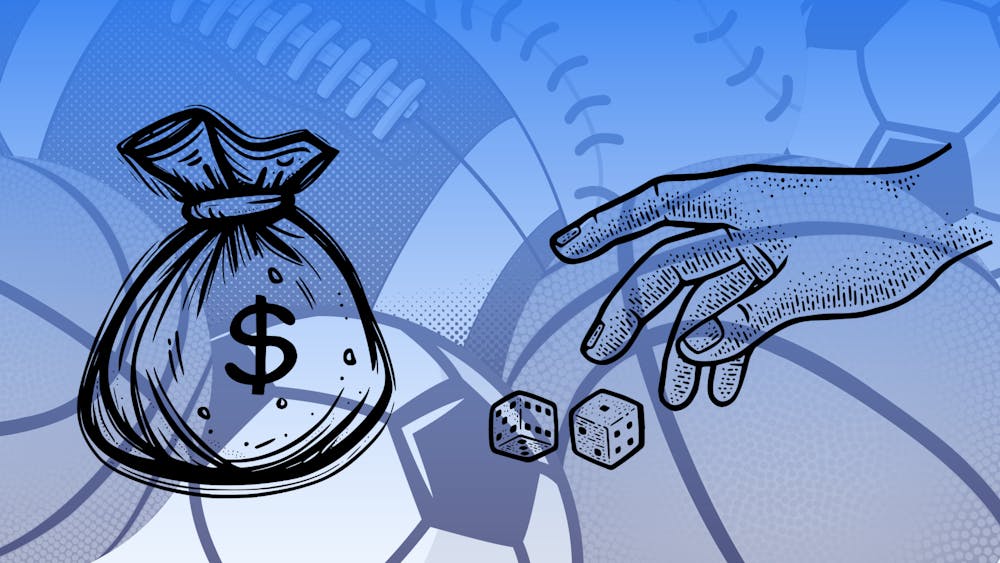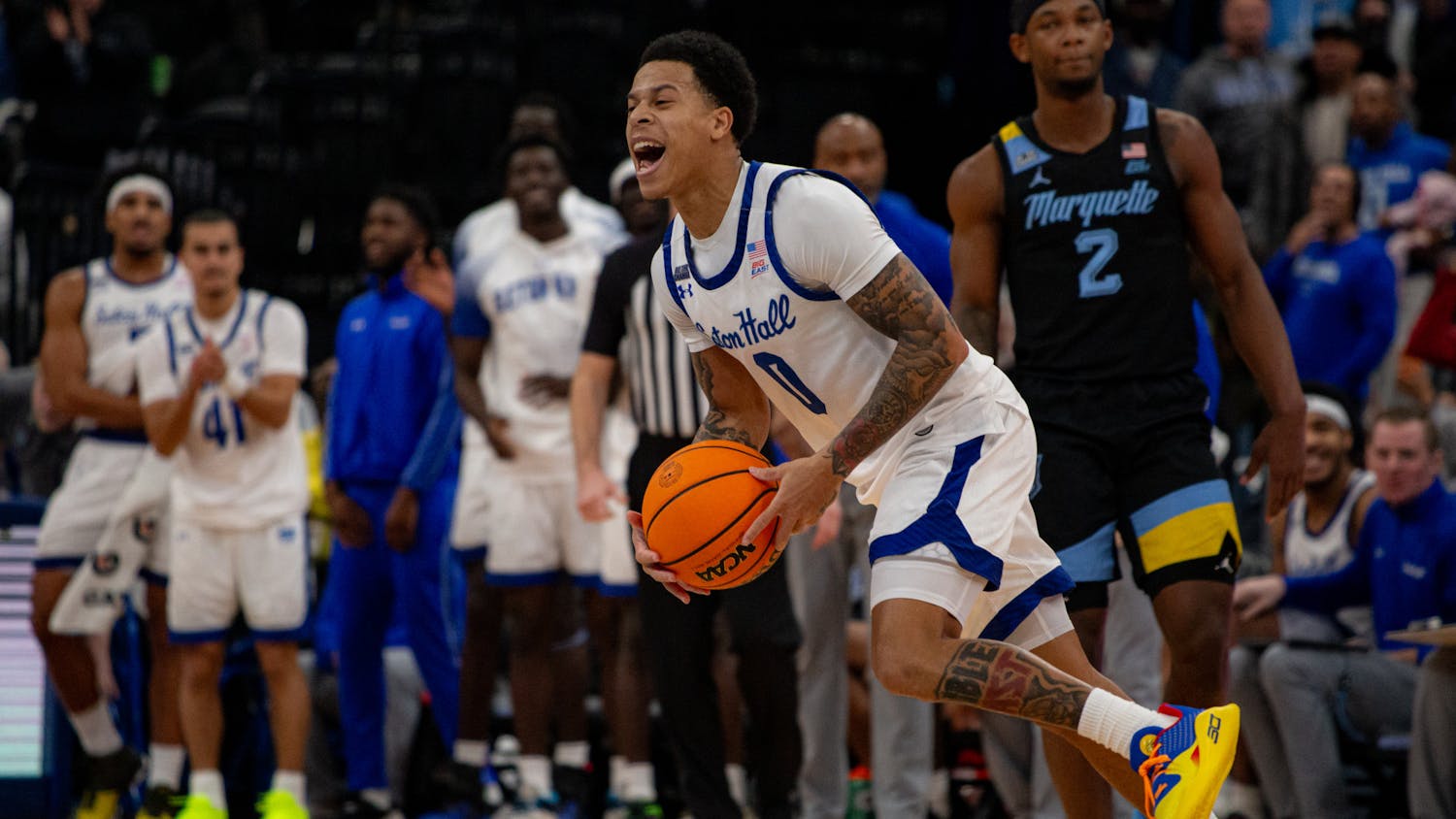With odds displayed on broadcasts, non-stop commercials from betting companies, and millions of dollars wagered daily, sports betting has become a huge part of sports culture over the past few years.
But, as it has grown, so have the problems that come with it. The recent Rutgers University gambling scandal shows how serious those problems can be, especially when they involve college athletes.
Last month, federal officials discovered a gambling ring tied to the mafia that included former athletes from Rutgers’ wrestling program. The group is accused of using inside information, placing illegal bets, and even trying to influence the outcomes of games they placed bets on.
For many students at Seton Hall, seeing something this prominent happen so close to home has changed how they view sports betting. Take junior sports business and communication major Matthew Nazario, for example, who said that the Rutgers scandal proves how quickly gambling can cross the line.
“Sports betting is not a problem until it becomes one,” Nazario said. “It is sad and scary to see something like this happen at a college level. When it overlaps with a crime scheme or mob organization, it is not only money that is being messed with—it is also the lives and well-being of a lot of people.”
Some students agree that betting can become dangerous when players or insiders get involved. Others were less surprised by the news, like junior visual sound media major Jay Costa
“With everything coming out right now involving gambling, I can’t say I am surprised,” Costa said. “Athletes should not be allowed to gamble during their playing careers. It is a big reason why people argue against sports betting being legal in the first place.”
The same problems are starting to show up in professional leagues, too. The NBA has dealt with game-fixing and insider information cases over the past year, including the Jontay Porter scandal, in which he pleaded guilty to intentionally underperforming so others could profit from his prop bets. MLB has also had their own controversy this year when Cleveland Guardians pitchers Emmanuel Clase and Luis Ortiz were indicted for allegedly rigging pitches for bettors who had inside information. These stories show that gambling problems reach every level of sports—from college to the pros.
Junior mathematical finance major Nicolas Kasbo said the biggest problem is when players work together to profit from inside knowledge.
“Players will collaborate with friends or family to wager on the player’s under on statistics,” Kasbo said.
He said he believes match fixing, illegal gambling groups, and organized crime remain serious issues in the sports world.
And yet, Kasbo is conflicted about sports betting: while betting has grown the sport by making games more exciting for casual fans, he still worries about how often gambling ads appear on TV.
“I do not believe it is correct to promote gambling, especially with kids watching games,” he said.
Even though sports betting can make games more exciting, students agreed that scandals like the one involving the former Rutgers wrestlers show how easily things can go wrong. As more states legalize sports gambling and as sportsbooks around the U.S. continue to grow, the main challenge now is protecting sports from the problems that come with betting.
Jaden Highsmith is the assistant editor of The Setonian’s Sports section. He can be reached at jaden.highsmith@student.shu.edu.





